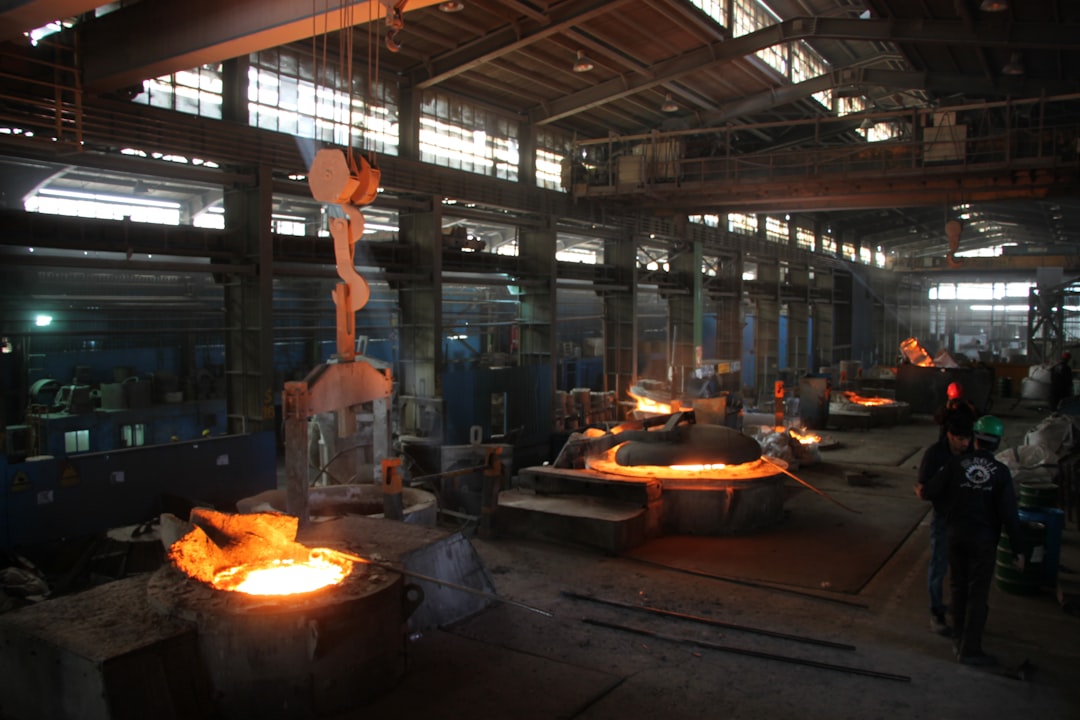The steel industry is a cornerstone of global infrastructure, demanding highly skilled professionals. To stand out in this competitive field and demonstrate your expertise, obtaining relevant certifications is crucial. This comprehensive guide delves into the world of steel industry certifications, exploring various types, their benefits, application procedures, and the key organizations involved.
Understanding the Importance of Steel Industry Certifications
Steel industry certifications are more than just pieces of paper; they’re powerful statements of competence and commitment. They validate your knowledge and skills, enhancing your credibility with employers and clients. These certifications demonstrate your proficiency in specific areas of steel production, processing, quality control, safety, and management. In a field driven by precision and safety, certified professionals are highly sought after, leading to better career prospects, higher earning potential, and increased job satisfaction.
Furthermore, certifications often reflect adherence to industry best practices and international standards, ensuring consistent quality and safety across projects. For companies, employing certified personnel reduces risks, enhances productivity, and improves overall operational efficiency. This ultimately translates to better bottom lines and a stronger competitive edge in the global market.
Types of Steel Industry Certifications: A Detailed Overview
The steel industry encompasses a broad spectrum of specializations, and certifications reflect this diversity. Some common types include:
- Welding Certifications: These are crucial for professionals involved in joining steel components. Certifications like AWS (American Welding Society) certifications cover various welding processes and materials, ensuring welds meet stringent quality and safety standards. Different levels of certification exist, reflecting varying skill levels and expertise.
- Metallurgical Engineering Certifications: These certifications validate expertise in the science and technology of metals, including steel. They cover areas like material properties, processing techniques, and quality control, often involving advanced knowledge of chemistry, physics, and engineering principles.
- Quality Management Certifications (e.g., ISO 9001): While not specific to steel, these certifications demonstrate a commitment to quality systems and processes, essential for any steel company aiming for excellence and customer satisfaction. These certifications cover aspects like documentation, process control, and continuous improvement.
- Safety Certifications (e.g., OSHA): Safety is paramount in the steel industry. Certifications related to occupational safety and health demonstrate a commitment to safe work practices and risk mitigation. These certifications are crucial for ensuring a healthy and productive work environment.
- Management Certifications (e.g., PMP, Six Sigma): For professionals in managerial roles, certifications related to project management, process improvement, and quality control are invaluable. These certifications demonstrate leadership skills and expertise in streamlining operations and enhancing efficiency.
Applying for Steel Industry Certifications: A Step-by-Step Guide
The application process varies depending on the specific certification and issuing organization. However, general steps typically include:
- Research and Selection: Identify the relevant certification that aligns with your skills and career goals.
- Eligibility Check: Review the eligibility criteria set by the certifying organization, including educational qualifications, work experience, and any prerequisite training.
- Application Submission: Complete the application form accurately and thoroughly, providing all necessary documentation.
- Examination or Assessment: Most certifications involve an examination or practical assessment to evaluate your knowledge and skills.
- Certification Issuance: Upon successful completion of the assessment, you’ll receive your certification.
- Maintenance and Renewal: Many certifications require periodic renewal to ensure ongoing competency and adherence to industry best practices.
Key Organizations Offering Steel Industry Certifications
Several reputable organizations offer steel industry certifications globally. Some of the key players include:
- American Welding Society (AWS): A leading provider of welding certifications.
- American Society for Metals (ASM International): Offers certifications related to materials science and engineering.
- International Organization for Standardization (ISO): Develops and publishes international standards, including those related to quality management systems.
- Occupational Safety and Health Administration (OSHA): Sets and enforces workplace safety standards in the United States.
- Various National and Regional Organizations: Many countries and regions have their own professional organizations offering steel-related certifications.
Benefits of Holding Steel Industry Certifications
The advantages of possessing steel industry certifications are numerous and impactful. They include:
- Enhanced Credibility and Recognition: Certifications demonstrate your expertise and commitment to professional excellence.
- Improved Career Prospects: Certified professionals are highly sought after by employers.
- Higher Earning Potential: Certifications often translate to higher salaries and better compensation packages.
- Increased Job Satisfaction: Demonstrating competency leads to greater confidence and job satisfaction.
- Professional Development: The process of obtaining certifications often involves continuous learning and skill enhancement.
- Competitive Advantage: Certifications give you a significant advantage in a competitive job market.
- Improved Safety: Certifications related to safety enhance workplace safety and reduce risks.
In conclusion, obtaining relevant steel industry certifications is a strategic investment in your career. By demonstrating your expertise and commitment to excellence, you’ll significantly enhance your prospects and contribute to a safer, more efficient, and innovative steel industry.




